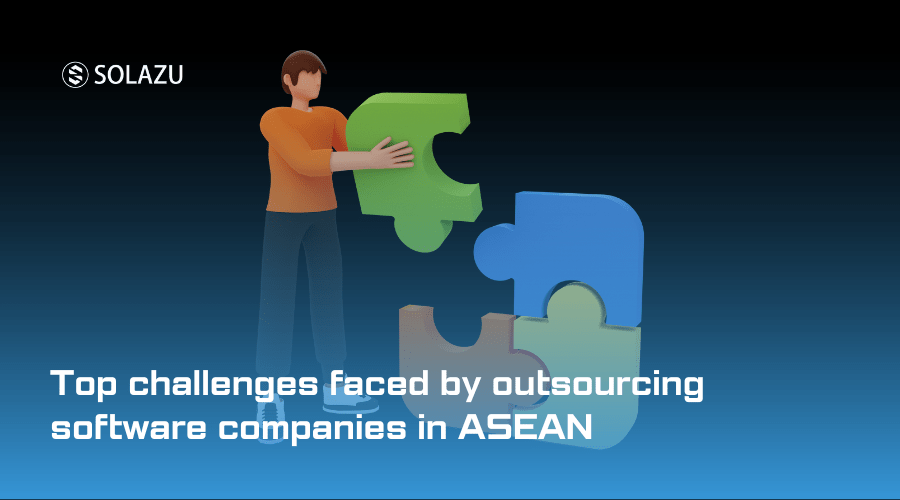Outsourcing software development to ASEAN (Association of Southeast Asian Nations) countries has become a popular choice for businesses looking to reduce costs, increase efficiency, and access a pool of skilled talent. However, outsourcing software development is not without its challenges, and companies in ASEAN face a variety of obstacles when providing outsourcing services. In this article, we will explore the top challenges faced by outsourcing software companies in ASEAN and how to overcome them.
Communication Barriers
One of the biggest challenges faced by outsourcing software companies in ASEAN is communication barriers. ASEAN countries have diverse cultures and languages, and sometimes communication can become a barrier, especially when dealing with a remote team. Poor communication can lead to misunderstandings, delays, and ultimately, poor quality work. To overcome this challenge, outsourcing companies need to have a clear and concise communication plan in place, which outlines the mode of communication, the frequency of communication, and the channels to be used. Companies should also consider hiring bilingual project managers or translators to ensure effective communication.
Quality Control
Outsourcing software development to ASEAN companies can result in significant cost savings. However, it can also lead to a loss of control over the quality of work produced. Poor quality work can damage the reputation of the outsourcing company and ultimately impact their bottom line. To overcome this challenge, outsourcing companies should invest in a robust quality assurance process. This should include regular quality checks, testing, and reviews to ensure that the final product meets the required standards.
Data Security
Data security is a growing concern for outsourcing companies. With increasing cyber threats, outsourcing companies need to ensure that they have the appropriate security measures in place to protect sensitive information. This includes establishing clear security protocols, using secure channels for communication, and providing training to all employees on data protection best practices.
Time Zone Differences
Another challenge faced by outsourcing software companies in ASEAN is time zone differences. Depending on the location of the outsourcing company, the time difference can be significant, resulting in delayed communication and project delivery. To overcome this challenge, outsourcing companies should consider establishing a flexible working schedule that allows employees to work at different times to accommodate the time difference. Additionally, outsourcing companies can use project management tools to track progress and keep everyone updated on project timelines and milestones.
Cultural Differences
Cultural differences can create challenges when outsourcing software development to ASEAN companies. Different cultures may have different work ethics, communication styles, and expectations, which can lead to misunderstandings and conflict. To overcome this challenge, outsourcing companies should invest in cultural training and education for their employees. This will help them understand the cultural differences and work effectively with their counterparts in ASEAN countries.
In conclusion, outsourcing software development to ASEAN companies offers many benefits, including cost savings and access to a skilled talent pool. However, outsourcing companies face many challenges that can impact the quality of work, project timelines, and ultimately, the bottom line. By addressing these challenges head-on and implementing best practices, outsourcing companies can ensure successful outsourcing projects and build strong, long-term partnerships with ASEAN companies.
